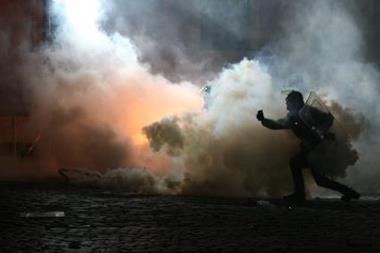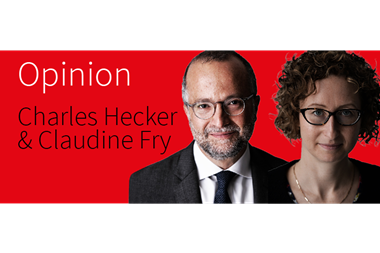A resurgence of anti-establishment sentiment and agitation in Europe is likely, amid uneven national recoveries from the pandemic
A resurgence of anti-establishment sentiment and agitation in Europe is likely in 2022, amid uneven national recoveries from the pandemic. This is according to security and geopolitical intelligence firm Dragonfly, in its Strategic Outlook 2022.
Weakened economies, public disaffection with mainstream political parties, and a probable rise in immigration will provide opportunities for the many political actors that seek to change the status quo in Europe, it warns. Populist parties, extremists on the left and right, and hostile foreign governments are all likely to exploit grievances and economic vulnerabilities to further their agendas.
Henry Wilkinson, chief intelligence officer at Dragonfly, says: “What we forecast in 2022 are the implications of deepening systemic shifts in the international system. The rules-based international order continues to weaken in the face of waning US commitment to uphold it, disunity between democracies, and an intensifying spread of authoritarianism.
”The landscape remains extremely challenging for global businesses, and the state of world politics is highly unfavourable to meet wide-ranging threats and global risks.
“These include the impacts of the Covid-19 Omicron variant, strategic competition between the US and China, rising tensions over Ukraine and Taiwan, entrenching conflicts in Africa, widening inequalities globally, and acute and chronic environmental crises.
“Although the geostrategic outlook is generally pessimistic for 2022, chinks of positivity can be found… The strength of the global economic rebound suggests many countries and regions will emerge in bruised but reasonable shape in 2022, albeit vulnerable to wider instability and new coronavirus variants that may emerge. This is a positive change from last year, but it is still not a climate where a sense of normalcy is likely to prevail.”
Neverthless, Europe enters 2022 in a weakened state, albeit with more resilient prospects for economic recovery than many other regions. It is also likely to be a year of relative continuity with little change at upcoming national elections, with the exception of Viktor Orban’s government in Hungary, facing the highest chance of an electoral defeat since 2010. But this does not mean Europe will escape political turbulence.
Countries across the continent face multiple threats to their recovery and 2022 is likely to be a year where crises on several fronts will test the EU.
New Covid-19 outbreaks and ongoing disruption to global supply chains, and particularly energy supplies, are the main factors that could derail or slow growth and compound a raft of other issues that threaten discord.
These risk factors for Europe as a whole are heavily interconnected to the recovery and stability prospects of other regions, which themselves are pegged to wider negative geopolitical trends and instability.
”The increasingly competitive and adversarial nature of international relations, not least between Russia, China and the United States, but also between smaller states in Europe’s near abroad will almost certainly have a direct impact on how Europe fares in the coming year.”
“Eastern European countries, such as Poland, Bulgaria and the Western Balkan states, are particularly vulnerable to crises in 2022 that the EU can ill afford and seems poorly equipped to prevent,” the report concludes.




















No comments yet